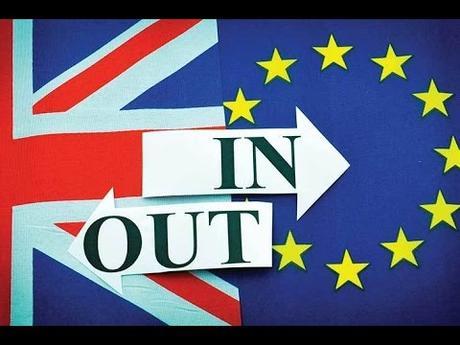
Brexit.
When I heard about the UK referendum that took place in June, I thought the possibility of the UK leaving the EU must be a joke. I expected the population to vote to stay in the EU and I wasn’t alone. But the citizens of the UK decided to exit, shocking and shaking the world, and sparking a great deal of uncertainty by doing so. While the news of this event has mostly focused on the resulting political fallout and worldwide economic tumult, Brexit will also have a profound influence on a group the mainstream media rarely covers: the record number of refugees worldwide.
For the past year, Europe has been profoundly affected by a widespread refugee crisis. This crisis was primarily sparked by a civil war between the so-called rebels and the Assad regime in Syria. Hundreds of thousands of people have been forced to flee their home countries as it has become increasingly dangerous for them to stay.
Over the course of this influx, attitudes towards migration have hardened all over Britain, the E.U., and which have also become particularly apparent during the recent election campaigns in the U.S. For example, at a recent rally in Rhode Island, Donald Trump implored his supporters to “lock their doors” to keep safe from Syrian refugees coming into the US. On more than one occasion, he wrongly insinuated that Syrian refugees are affiliated with ISIS and therefore can’t be trusted. Across Europe, violence against refugees has been at an all time high: In Germany, a country once believed to be the most hospitable country for refugees, many are met with rioting crowds and some have even set refugee shelters aflame.
Britain, however, had been in a bubble of sorts in regards to this wave of migration. Safeguarded by geography and its status outside the Schengen zone (which is an area that includes 26 European countries that have abolished passport requirements and any other type of border control at their mutual borders), it has remained mostly untouched by this crisis and has accepted only a small fraction of asylum seekers who arrived at Europe’s southern shores last year. But Britain’s exit from the E.U. is expected to deeply affect migration to and from the nation: It will be much more difficult for other E.U. citizens to easily migrate to Britain, and for British people to migrate to other nations within the EU. It’s also worth noting that the UK’s already unwelcoming policies towards asylum seekers remain unchanged: The country has long opted out of most EU asylum policies, including last September’s agreement, which requested that member states accept 160,000 asylum seekers relocated from Greece and Italy. Furthermore, a bilateral agreement with France made in 1991 allowed Britain to implement border controls on French soil and has prevented thousands of migrants and refugees from reaching UK shores.
Getting EU member states to agree on migration and asylum policies had already proven difficult before Brexit, and while some politicians think passing policies may now be easier, the EU also now stands to lose the UK’s influence with key countries such as Nigeria and Pakistan, which are among 16 priority countries for the EU in regards to migration.
Thus far, a lot of the public anger about immigration post-Brexit is less about the concerns of British people for their nation’s well being than it is for themselves. Their anger often seems to reflect their own fears about unemployment, housing, a sense of alienation and loss of their own identity. These attitudes are damaging and only deepen the existing refugee crisis. People so often forget that refugees are not people looking to inflict damage on other nations, but people who are actively choosing peace: They left their warring home country in hopes of finding just that.
Ultimately, Brexit serves as an important reminder that young people must exercise their civic duties and register to vote. Many believe Brexit would not have happened had the youth voted in greater numbers and voiced their perspective in the referendum. Our voices are powerful and important, and now more than ever, it is important that they are heard — especially when it comes to supporting and advocating for those who are voiceless.

